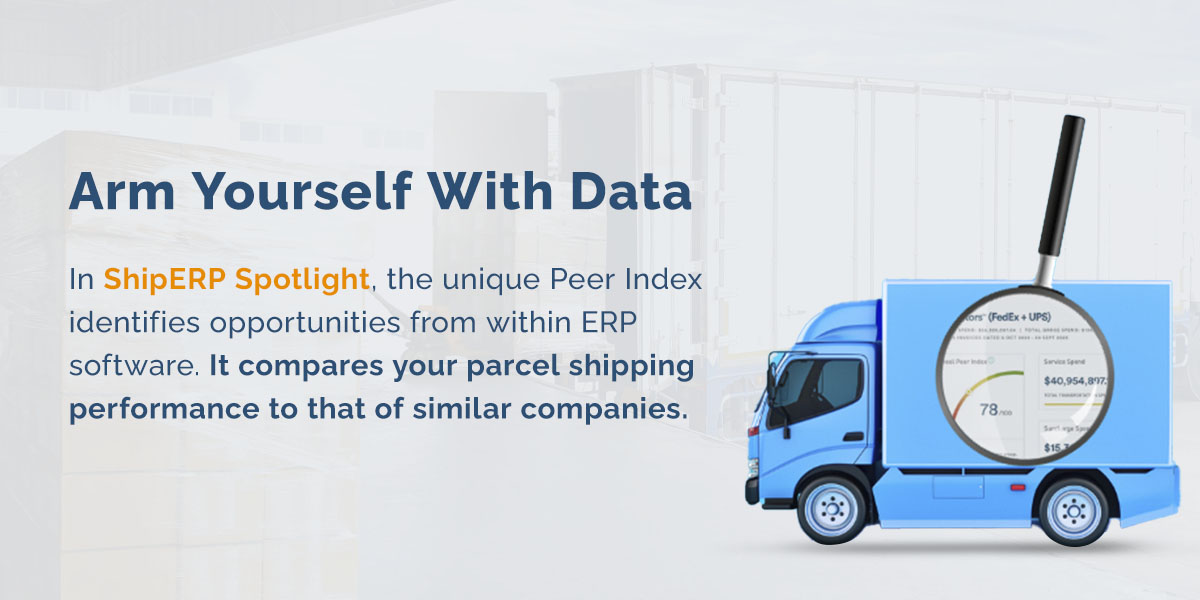
A Shipper's Guide to Parcel Spend Management and Carrier Contract Negotiation
Your choice of shipping carrier makes a big difference to your bottom line. Unfortunately, carriers aren't very transparent about rates, making it tough to negotiate a fair agreement.
If you ship high volumes, you must know how to negotiate parcel rates and freight rates. Our guide to small parcel contract negotiation can help you ace your next meeting.
What Are Carrier Contracts?
Carrier contracts refer to agreements between shipping companies and businesses sending out shipments. Without a contract, you'll probably pay high prices. Contracts allow you to leverage your high volume of shipments to get a lower rate.
These contracts can include freight contracts and parcel contracts:
- Freight contracts are for large shipments, like boxes stacked on a pallet. They usually weigh over 150 pounds or are longer than 165 inches. Freight shipments often use partial, full, or less-than-truckload (LTL) shipments.
- Parcel contracts are for the smaller items. They might include many packages shipped to different locations.
You may also see shipping contracts. This term often refers to large shipments by train, plane, or ship.
What's Covered in a Carrier Contract?
Carrier contracts can include almost anything you want them to include, such as:
- Rates: Of course, your basic shipping rate will be in the contract.
- Scope of work: This information outlines how much you expect to ship and how often.
- Payment schedule: Some providers may want you to pay more frequently than others, such as a weekly vs. monthly schedule. Freight contracts may also cover brokerage and commission fees.
- Volume tiers: Volume tiers refer to different rates carriers may charge based on how much you ship.
- DIM pricing: Dimensional pricing (DIM) charges you based on the size of a package, not just its weight.
- Liability: A carrier contract spells out who is liable for problems like late deliveries or damage.
- Confidentiality: A carrier will probably ask you to keep the contract terms quiet. This section outlines those requirements.
- Termination: A termination clause says what events would end the agreement. For example, if you break confidentiality, the other party could terminate the contract.
- Insurance: Similarly, contracts outline insurance requirements. For example, a carrier might ask you to have indemnity insurance.
- Bundles: Say you work with a big logistics company. You might get discounts on other fulfillment services like warehousing or distribution. Your contract would specify those perks.
- Bills of lading: Freight contracts may include requirements for bills of lading. These documents offer proof of delivery. Many carriers have specific requirements for when and how they want to get them.
And this list is just the tip of the iceberg! Depending on your shipping operation's size and complexity, your contract could include many other topics.
How to Negotiate Parcel Rates and Contracts
Negotiation is crucial for any partner and every contract, helping you cinch a fair deal. Rates are one of the most important parts of parcel negotiation. And a fair rate can dramatically improve your bottom line.
Still, small parcel contract negotiation covers more than just rates. It also explores the terms of your deal, like volume requirements and minimum payments.
As you prepare to negotiate, keep the following tips in mind:
1. Arm Yourself With Data
Data is incredibly valuable during parcel negotiations. Shipping companies like to keep rates secret for this very reason. Take some time to identify fair rates before heading to a meeting.
Conduct market research by comparing carriers and reading reports. Look at their rates and performance over time. Finding a benchmark where a carrier doesn't meet the competition could help you get more favorable terms.
One way we help customers stay informed is through a partnership with Reveel. In ShipERP Spotlight, the unique Peer Index identifies opportunities from within ERP software. It compares your parcel shipping performance to that of similar companies.

Reveel's parcel intelligence aims to put you, FedEx, and UPS on a level playing field.
2. Be an Equal Partner in Parcel Negotiations
The carrier probably negotiates contracts every day. That doesn't mean they should have the advantage.
Focus on building trust and respect with your carrier. You'll need these aspects in your relationship with them, anyway. Build rapport, and take time to understand their side.
This approach can help you establish negotiating power. Make sure the carrier knows what you bring to the table. Be honest about your concerns and the data you've collected.
3. Conduct Parcel Audits
Carrier contract terms that benefit one company might not benefit yours. You'll need to understand your shipping behaviors to find the best terms for you. Performing a parcel audit helps by providing visibility into your expenses and resource usage.
For example, audit data can help you set benchmarks. If you rarely exceed 500 packages a month, a volume-based discount for 1,000 packages wouldn't help much.
On the other hand, let's say many of your packages are expedited. A deal on rush shipments could be valuable.
Some capabilities of parcel audits include:
- Using artificial intelligence to find opportunities for savings and optimized contracts.
- Giving the carrier reliable predictions, such as shipping frequency and average parcel size.
- Identifying problems you've had with the carrier, such as late, lost, or damaged shipments.
- Finding unclaimed credits from overcharging.
4. Prioritize Your Requests
Parcel contract negotiation requires compromise. You won't get everything on your wishlist. Identify which items are must-haves and which ones are nice-to-haves.
Consider the pricing impact of each item and its relevance to your shipping habits. Going after low-hanging fruit could provide more benefits than giant rate reductions.
Remember, rates aren't everything. Explore the possible benefits of small wins in areas like service levels and shipping zones.
5. Pay Attention to the Details
Before signing, go through your contract with a fine-toothed comb. Consider having a lawyer look it over to spot potential problems. Read the fine print and watch out for any curveballs.
6. Update Your Business Systems
You've agreed to a contract and signed it — congratulations! Now, you'll need to update your business systems with the new terms. Use ShipERP to quickly update your carrier or add a new one.
Keeping your enterprise resource management (ERP) program updated helps reduce the impacts of new contracts. When making shipments, you can calculate the best option based on multiple carrier contracts.
7. Renegotiate as Needed
Your shipping behaviors may change as your business evolves. Plus, carrier performance could change. Keep an eye on your contracts with regular audits and analyses.
Try ShipERP Spotlight's contract management tools to stay updated. They put all your contract details in one place and analyze relevant data.
ShipERP Spotlight can provide real-time alerts when rates or terms change. It can also tell you when it identifies an opportunity to negotiate better rates. Tools like these arm you with the right information for effective parcel negotiations.
Optimize Your Contract Negotiations With ShipERP

Acing negotiations is crucial for getting a good contract. You'll need plenty of data on your side, and ShipERP can help.
ShipERP offers shipping resources through standalone software and ERP integrations. Find the best prices, analyze your shipping habits, and research the competition. Schedule a live demo today to see ShipERP in action!
